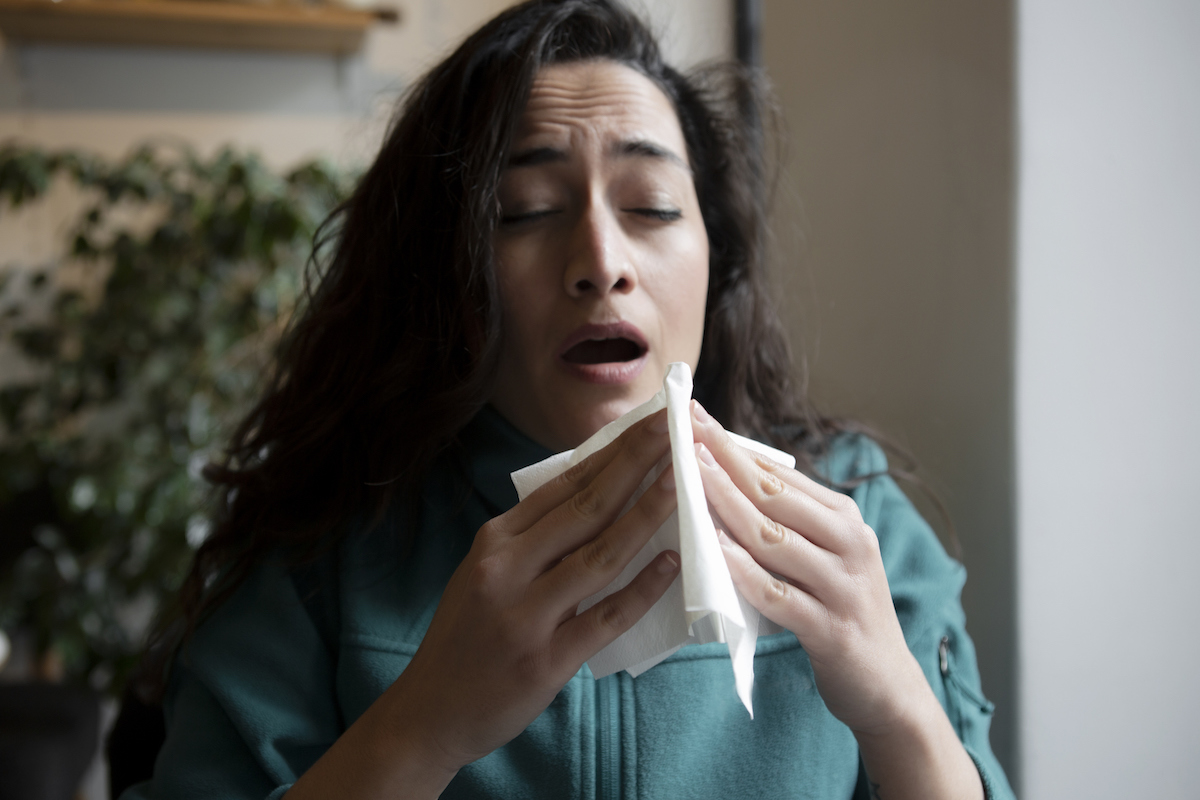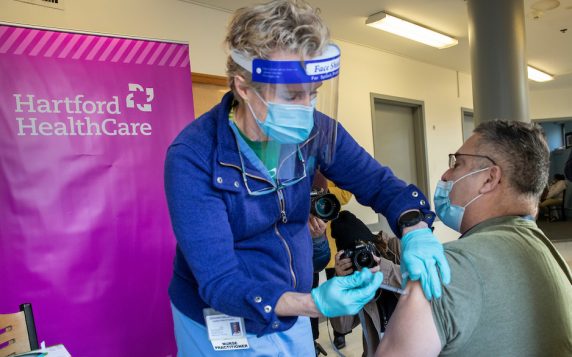The common cold and COVID-19 belong to the same family of viruses, known as coronavirus, yet COVID ranks among the 10 deadliest pandemics in history.
Even if you’re fully vaccinated, it’s important to monitor symptoms shared by these two coronaviruses: fever, chills, body aches and cough. It might not be a common cold or even season allergies.
“If anybody has any symptoms that may be a common cold, they should probably still want to get tested (for COVID-19), even if they’ve been vaccinated,” says Dr. Ulysses Wu, Hartford HealthCare’s System Director of Infection Disease and Chief Epidemiologist.
Despite one of the nation’s highest vaccination rates, Connecticut is now rated a high COVID risk by the COVID Risk & Vaccine Tracker, available from COVID Act Now — a nonprofit affiliated with Georgetown, Stanford and Harvard universities. The level assesses daily new cases, infection rate and positive test rate.
If you’re vaccinated, don’t dismiss unusual amounts of sneezing. It’s usually a symptom of cold, flu or allergies, but researchers now say it’s common among breakthrough COVID cases, when people test positive despite being vaccinated. The ZOE COVID Symptom study, which tracks symptoms using an app of both the vaccinated and unvaccinated, found that sneezing was often a sign of COVID-19 — but only among the vaccinated.
The doctors and scientists from Massachusetts General Hospital, Harvard’s T.H. Chan School of Public Health and health science company ZOE who created the app caution that the link between sneezing and COVID-19 and sneezing isn’t strong.
But, they wote, “If you’ve been vaccinated and start sneezing a lot without an explanation, you should definitely get a COVID test, especially if you are living or working around people who are at great risk from the disease.”
The Centers for Disease Control and Prevention lists 11 primary COVID symptoms:
- fever or chills.
- cough.
- shortness of breath or difficulty breathing.
- fatigue.
- muscle or body aches.
- headache.
- new loss of taste or smell.
- sore throat.
- congestion or runny nose.
- nausea or vomiting.
- diarrhea.
Researchers at the Stanford University School of Medicine also found it’s possible people might experience milder COVID symptoms if some of their immune system cells have retained memory of a previous seasonal coronavirus, which can cause about a quarter of children’s common colds. With this memory, the body is better equipped to act quickly against SAS-CoV-2, the coronavirus that causes COVID-19.
This might explain why children, and others, are better able to withstand COVID-19.
“But if you feel ill,” says Dr. Wu, “it could be COVID. You may put other people at risk.”
To find a COVID-19 testing location near you, click here.



